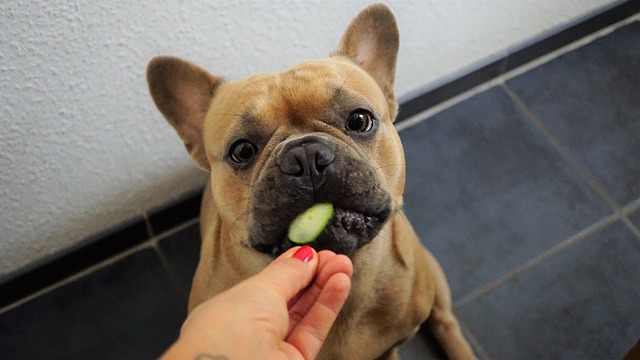In this post, we will talk about vitamins and minerals for your dog’s health. Ensuring your furry friend receives a balanced diet rich in essential vitamins and minerals is paramount for their overall health and well-being.
This guide dives into the world of canine nutrition, detailing the crucial vitamins and minerals your dog needs to maintain optimal health.
From promoting a shiny coat and healthy skin to supporting bone health and boosting the immune system, we’ll explore how each nutrient plays a vital role in your dog’s diet.
Whether you’re a seasoned dog owner or new to the pet parenting community, this guide will equip you with the knowledge needed to make informed decisions about your dog’s nutritional needs.
Guide to Vitamins and Minerals for Your Dog’s Health
Essential Vitamins for Canine Health
Vitamins are organic compounds that are crucial for sustaining life and health. They play a significant role in various bodily functions, including metabolism, immunity, and digestion.
For dogs, certain vitamins are absolutely essential. Vitamin A, for example, is vital for maintaining good vision, skin health, and coat quality. It’s also instrumental in supporting the immune system.
B vitamins, such as B6, are critical for brain function, hormone regulation, and red blood cell formation. Vitamin D regulates the balance of minerals like calcium and phosphorus, which are indispensable for bone development and maintenance.
Ensuring your dog’s diet includes these vitamins, either through balanced commercial diets or supplements as recommended by a veterinarian, is key to their long-term health and vitality.
The Role of Supplements in Enhancing Canine Health
In addition to a well-balanced diet, supplements can play a crucial role in augmenting your dog’s health, particularly when specific nutritional needs are not being met. Selecting high-quality dog vitamin supplements tailored to your pet’s specific health requirements can significantly impact their overall well-being and longevity.
Supplements can provide a concentrated source of essential nutrients, including vitamins, minerals, and omega fatty acids that support skin, coat, joint, and cognitive health. For instance, omega-3 fatty acids are renowned for their anti-inflammatory properties, which can aid in alleviating the discomfort associated with arthritis and improving overall mobility.
It’s important, however, to consult with your veterinarian before introducing any supplements into your dog’s regimen to ensure they’re necessary and suitable for your pet’s unique health requirements.
Importance of Minerals in a Dog’s Diet
Minerals are inorganic elements that play critical roles in a dog’s body functions, including the formation of bones and teeth, maintaining fluid balance, and facilitating nerve transmission.
Calcium and phosphorus, for example, are essential for strong bones and teeth, while magnesium supports muscle and nerve function.
Trace minerals like zinc, selenium, and iron are required in smaller amounts but are equally important for maintaining health. Zinc supports skin health and wound healing, selenium acts as an antioxidant to protect cells from damage, and iron is crucial for oxygen transport in the blood.
A balanced diet typically provides these minerals, but in some cases, supplementation may be necessary to address deficiencies.
Evaluating Your Dog’s Nutritional Needs
Understanding your dog’s specific nutritional needs can be challenging, given that these needs vary with age, breed, activity level, and health status.
Puppies, for instance, require diets richer in certain nutrients to support their rapid growth and development, whereas older dogs may benefit from diets formulated to support joint health and cognitive function.
Consulting a veterinarian can help determine your dog’s unique dietary requirements and recommend a diet or supplements that align with their health needs and lifestyle.
Selecting High-Quality Dog Foods and Supplements
When choosing dog foods and supplements, it’s important to select products that meet high-quality standards and are appropriate for your dog’s specific health concerns.
Look for foods that list a high-quality protein source as the first ingredient and are free from unnecessary fillers, artificial colors, and preservatives. Also, when selecting supplements, opt for reputable brands that undergo third-party testing to ensure product safety and efficacy.
Reading labels and understanding the source and purpose of each ingredient can help you make informed decisions about your dog’s nutrition.

Monitoring Your Dog’s Health and Nutrition
Regularly monitoring your dog’s health and nutritional status is essential for detecting any dietary deficiencies or excesses early on.
Changes in appetite, weight, energy levels, and coat condition can signal nutritional imbalances that may require adjustments to their diet.
Routine veterinary check-ups, including blood work, can also help assess your dog’s nutritional status and identify any underlying health conditions that could impact their dietary needs. Staying proactive about your dog’s nutrition will contribute to their overall health, happiness, and longevity.
Making sure your dog receives the right balance of vitamins, minerals, and supplements is fundamental to their health and happiness. This guide has laid out the essentials of canine nutrition, emphasizing the importance of a balanced diet enriched with the necessary nutrients to support your dog’s overall well-being.
These vital roles that vitamins and minerals play in your pet’s health and being mindful of their specific nutritional needs at various life stages can pave the way for a long, healthy, and vibrant life for your furry companion.
Always remember, that consulting with a veterinarian before making any significant changes to your dog’s diet or supplement regimen is crucial. Here’s to the health and thriving of our beloved dogs, who bring so much joy and companionship into our lives.
I hope you learned a thing or two from my article about Vitamins and Minerals for Your Dog’s Health. We own Miss Daisy, who is a little orange pomeranian! She is so precious and we sure do love her! Do you own a dog? If so, what kind? Let me know in the comments below! I love hearing about people’s pets!!!
